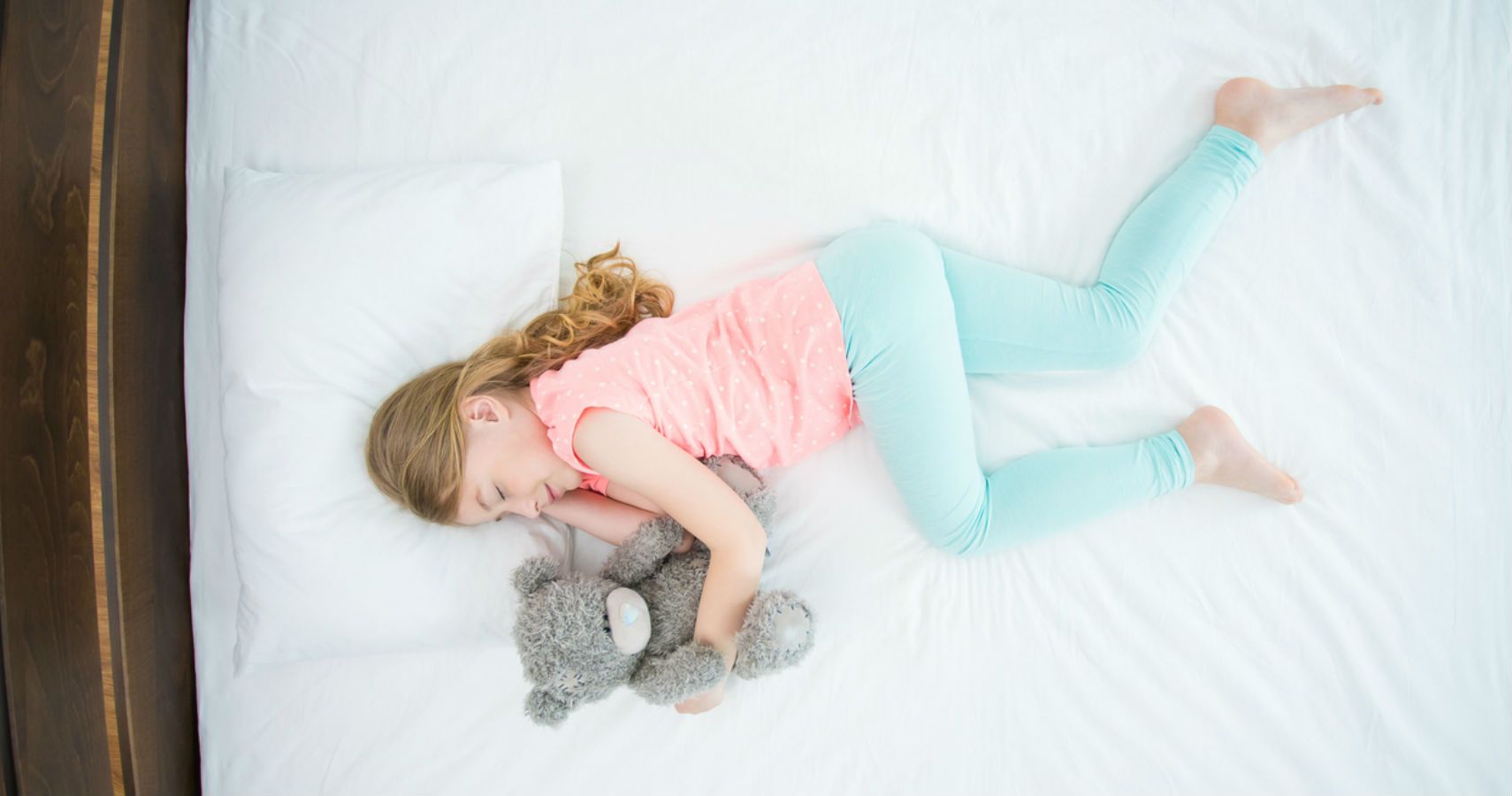Many parents see the end of diapers as some sort of liberation, and in many ways, it is! No more buying expensive diapers or trying to contain your wiggly toddler while you change them. No more lugging around a big diaper bag and looking for a semi-clean spot on the public bathroom changing table to use. Potty training isn't the best, but it beats poop explosions, hands down. However, there's a pretty big difference between potty training for day and night. And even if your kiddo has daytime bathroom use down to a science, chances are they're going to have a few accidents at night until they get the hang of it.
That wouldn't be a big deal, but when you consider how expensive mattresses are (and the fact that no one likes to wake up in a puddle of pee), it's definitely something you want to be prepared for! Bed-wetting happens. Accidents happen! Here's how to protect your mattresses and clean them in the event of a bed-wetting incident.
Invest in a good mattress protector to prevent bed-wetting stains or messes.
Until companies invent a completely waterproof mattress, you need to take it upon yourself to protect the ones you have. Mattress protectors are a good idea when when your kids are in diapers - those things can leak! There are several different brands and versions on the market, but there are a couple of things you should look for when purchasing a mattress protector. You want one that is fitted and covers the entire mattress (so make sure to buy it in the correct size). Look for one that is waterproof - they look and feel like a regular mattress cover, but they have a layer of waterproof material under the top padded layer, which protects your mattress from urine and other stains. Finally, look for one that is machine-washable! There's no point in buying a mattress protector for bed-wetting accidents if you can't clean it when it's done its job.
You can also find vinyl mattress covers, which work great in a pinch or for travel. The vinyl covers tend to be crinkly, hot, and noisy when slept on, so we don't recommend them for everyday use. However, they're cheaper than waterproof padded mattress covers, and as we said, are great for travel or to have on hand when you need something to use in a bed-wetting emergency.
Waterproof underpads are also a good option in a pinch.
You know those packs of disposable puppy pads you use to housebreak your pets? Waterproof underpads are basically like those. Now, we're not suggesting you use puppy pads on your kid's bed, although we have done so a few times and they worked pretty well. Desperate times, right? But waterproof underpads can be placed anywhere on the mattress, and function the same as a full mattress cover. They're also a lot cheaper!
One drawback is that they do move around, so if you have a child that shifts a lot in their sleep, this might not be the most effective option. But they are great to slide under a kid who's fallen asleep on an unprotected mattress or the couch, just for some added peace of mind. And again, waterproof underpads are great on the go to prevent bed-wetting accidents when you're traveling.
How to clean urine from your mattress following a bed-wetting accident.
Despite your best efforts and preparations, your little one had an accident in your bed and you've got pee on your mattress. Don't panic! Stains happen, and it doesn't mean you need to chuck your mattress and buy a new one. You have the best chance of getting it clean if you start while the stain is fresh. If you have a wet vac, use it to soak up as much of the excess urine as possible. Then sprinkle the stain with baking soda and let it sit for about 10-20 minutes to get rid of the rest of the moisture. Vacuum away the baking soda, and treat the stain with a mixture of two teaspoons of laundry detergent mixed in warm water.
Spray the stain, and allow it to sit. You can also use good ol' vinegar in water, but remember, this is where you sleep! A lot of people wouldn't care for the smell of vinegar on their mattress.
Once you've applied the detergent mixture, blot the moisture away using paper towels or a sponge. It's important to remove as much of the moisture as possible, to prevent mold and remove any residual urine. After you've blotted away the excess moisture, sprinkle the entire mattress with more baking soda and allow it to dry for 18-24 hours. Once dry, vacuum up the remaining baking soda, then allow the mattress to air-out in a well-ventilated area.
READ NEXT: Diapers, Potty-Training And Bedwetting: 20 Ways To Deal

